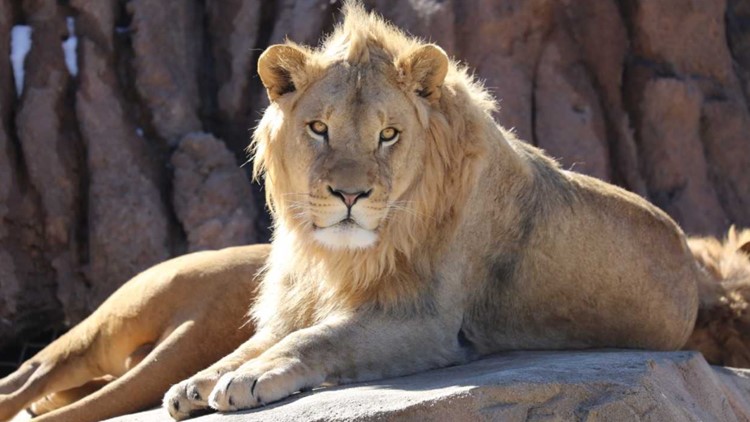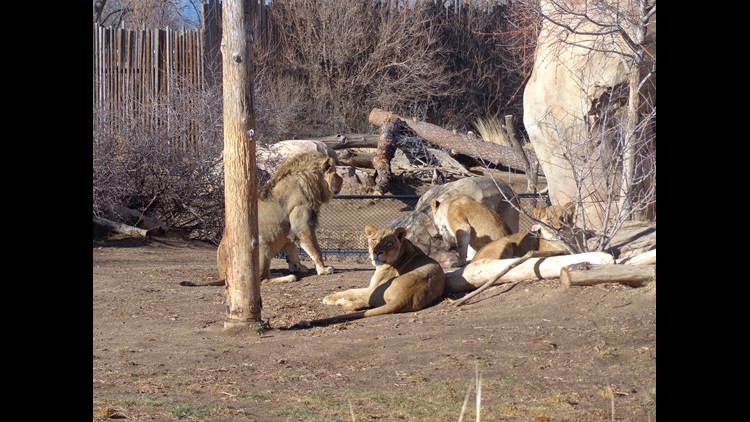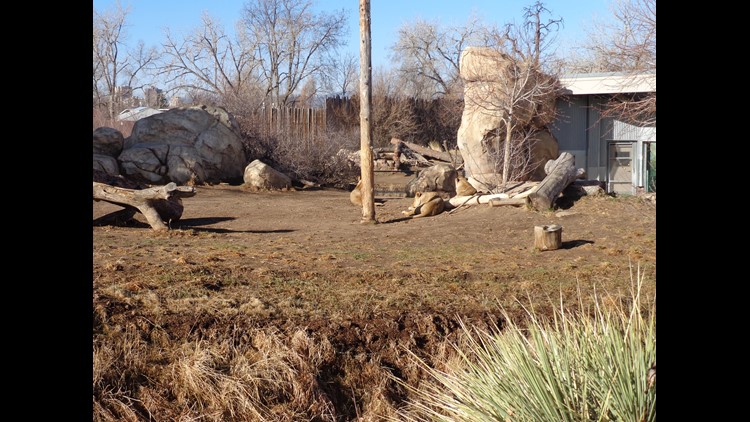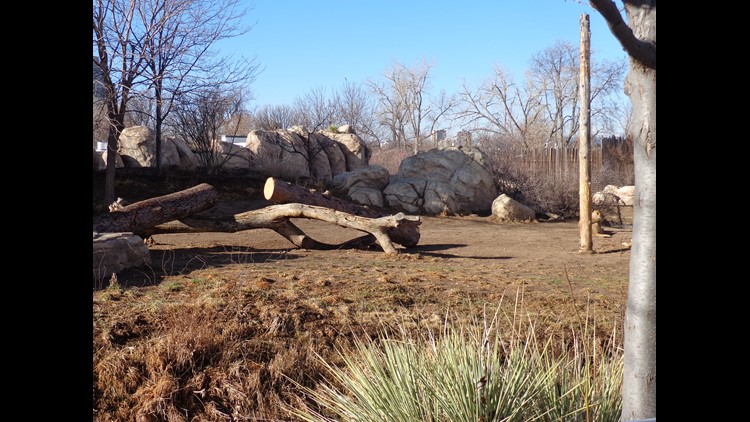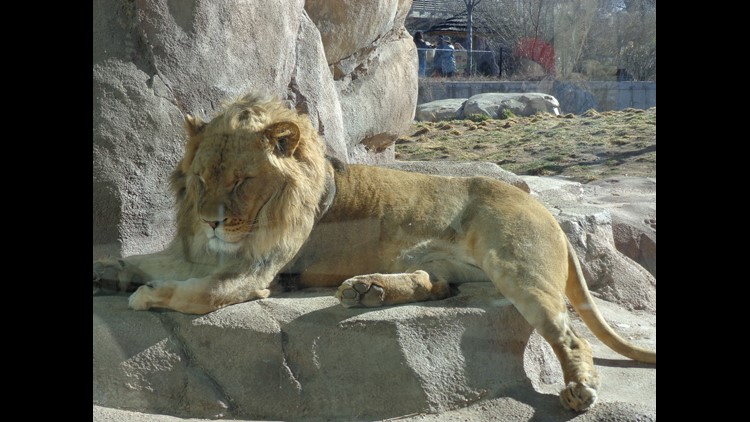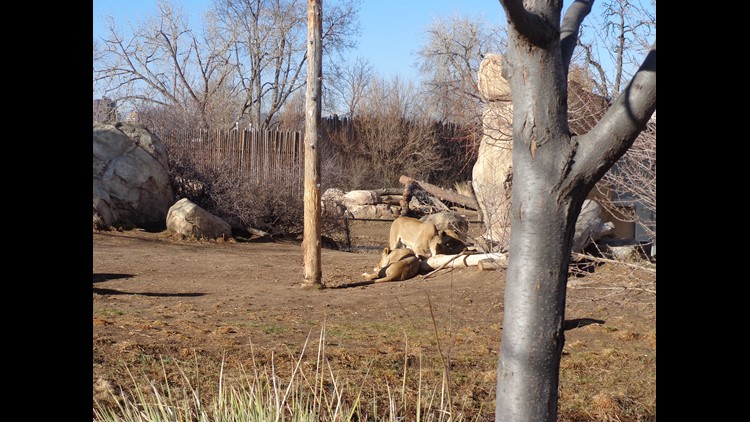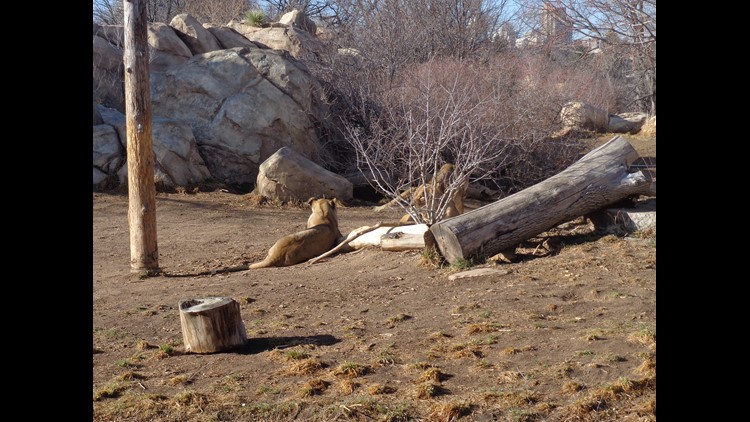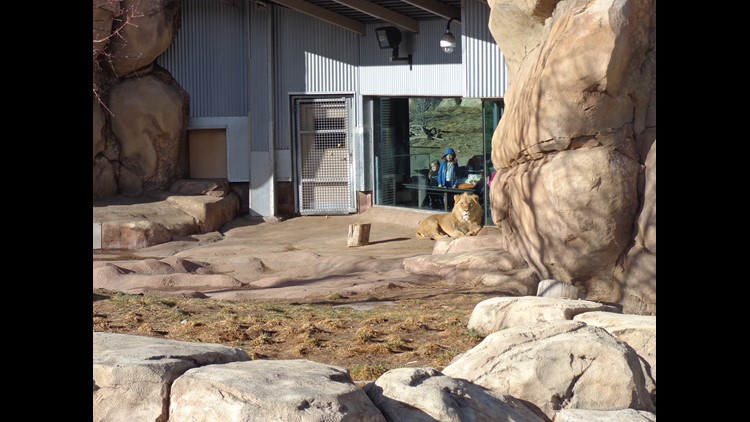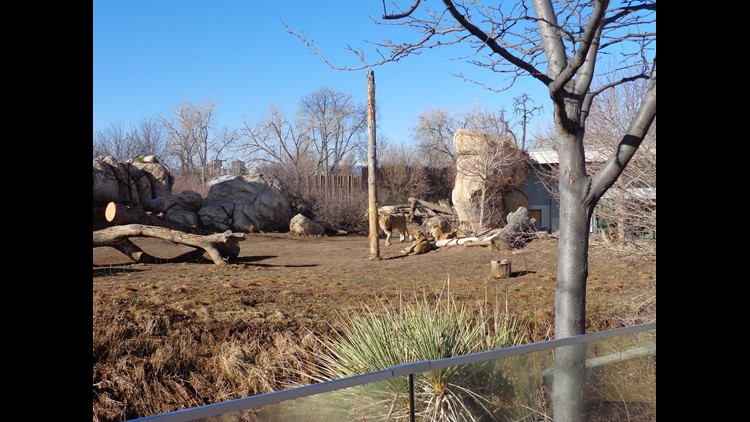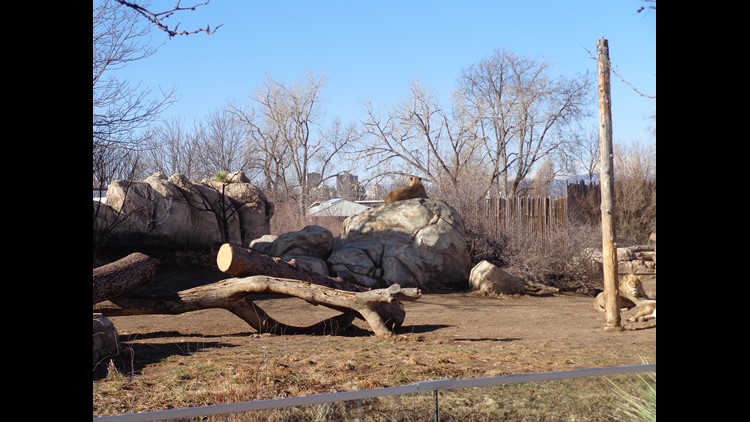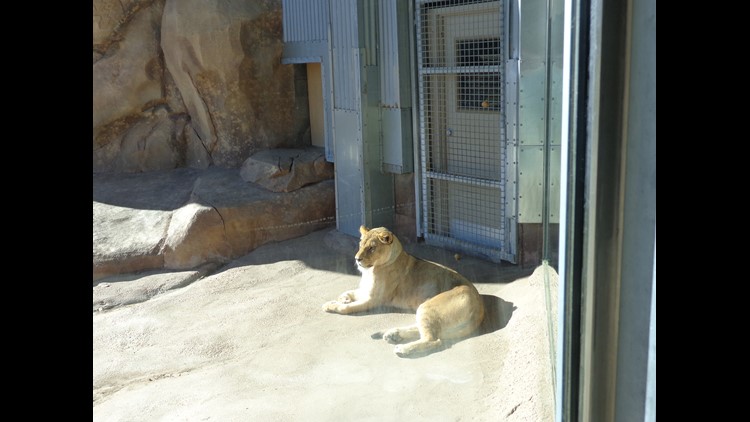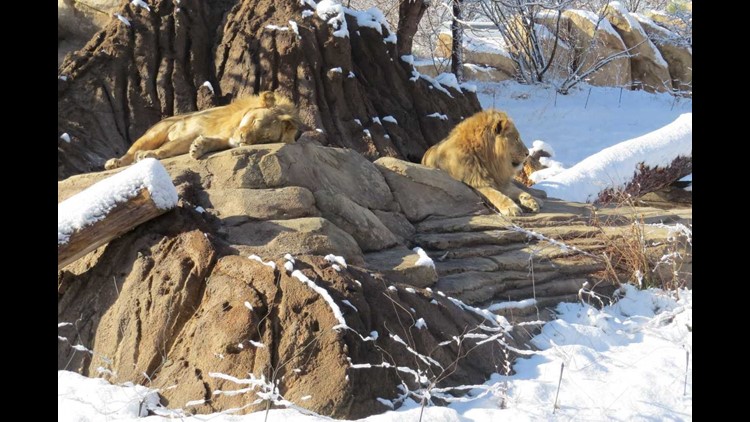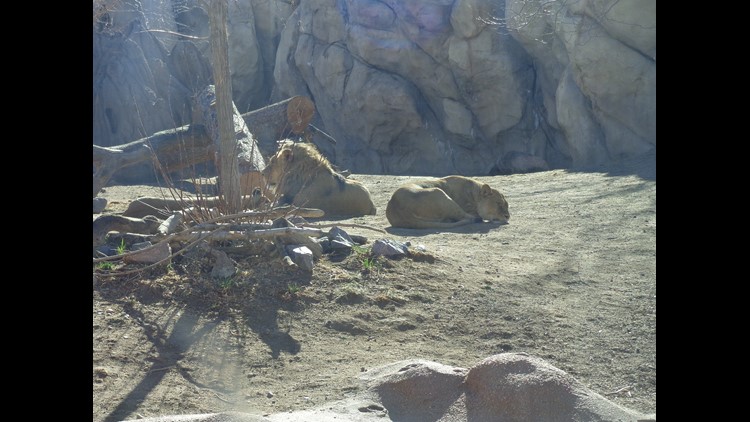It's the lap of luxury - literally. The Denver Zoo's big cat enclosure features big, heated rocks for the lions (and other big cats) to sleep on when things get cold.
Keepers sometimes find the lions curled up on the rocks when the animals are checked on at 7 a.m. each day. But Rebecca Mccloskey, the curator of carnivores and primates for the zoo, says those rocks aren't just for the lions.
Both the spotted hyenas and painted dogs also share the same space with the African lions - not literally. The animals rotate enclosures within Predator Ridge when curators notice them getting bored.
Mccloskey says that's usually when the animals refuse to come outside. She said their reluctance to come outside can also be weather related.
Since the hyenas, lions and painted dogs all hail from the same region in southern Africa, they're used to similar climates - close to what northern California is like. In a word: less severe winters than Colorado.
Sometimes the lions won't come out if it's too cold and they get to stay inside their own heated castle, Mccloskey says. They are kings of beasts, after all.
When it's very cold in the wild, lions will look for shelter. Mccloskey says that's usually a bush. Definitely, unlike the heated rocks they can lounge about on all day at the zoo. In their habitat, the coldest temperatures may hit 28 degrees Fahrenheit, versus Denver's -17 sometimes.
But these predators are pretty good at acclimating to the weather - be it snowing or sunny. Usually, when given the choice, the animals prefer to mosey about their enclosure.
That's because of the enrichment zookeepers provide to them. To keep the big cats from getting bored with their surroundings, the zookeepers will change the yard each day in some way. A lot of that has to do with smells they plant around the enclosure so the animals can seek them out.
Another simpler way is to plant food and bones around their spot.
Mccloskey says sometimes you can see the whole pride of lions pile on one rock.
And when it comes to their weather forecasting ability?
"They absolutely know when the weather is going to be nasty," Mccloskey says.
They get up and move around - or they'll look like they're searching for something. She says sometimes they go inside and wait for a door to open. They also get talkative before inclement weather.
Which brings us to the next fun thing about the Denver Zoo's lions: they are very talkative.
Mccloskey says their vocalizations can be heard five miles away. So first thing in the morning, when they decide to start vocalizing, the zoo's other pride, wherever it is, will answer.
The employees at the zoo say sometimes when it gets going they can't hear anything but the roars. They're not really conversing with the other pride, Mccloskey says, they're more just yelling to see who else is out there. She adds that's something they normally do in the wild.
Photos: Lions at the Denver Zoo
HELPFUL LINKS | South African Lion fact sheet
Other tidbits:
- You may think their roars are how they talk, but lions communicate their emotions to one another with facial expressions.
- Lions, like all cats, walk on their toes instead of the bottoms of their feet. This means they walk "digitdrage."
- Lions do have predators in the wild. Well, lion cubs do: hyenas and male lions not a part of the pride will try and kill cubs.
- The most social of all cats, they're the only non-loner cats (besides the ones in your home), that naturally live in social groups.
- Despite doing most of the work while hunting, the lady lions actually let the men eat first. The males protect the pride while the females are out searching for food.
- Lions live longer in captivity - about 24 years versus 15 years in the wild.
- Lions aren't endangered, but they are considered "vulnerable." This means that their long-term survival is not necessarily a given. They need large areas to hunt, and their ecosystems continue to be encroached upon.
- Those big manes on the boy lions? Not sure to appear regal. It's to look bigger against other males and attract females. It's also to protect their necks during fights with other lions.


